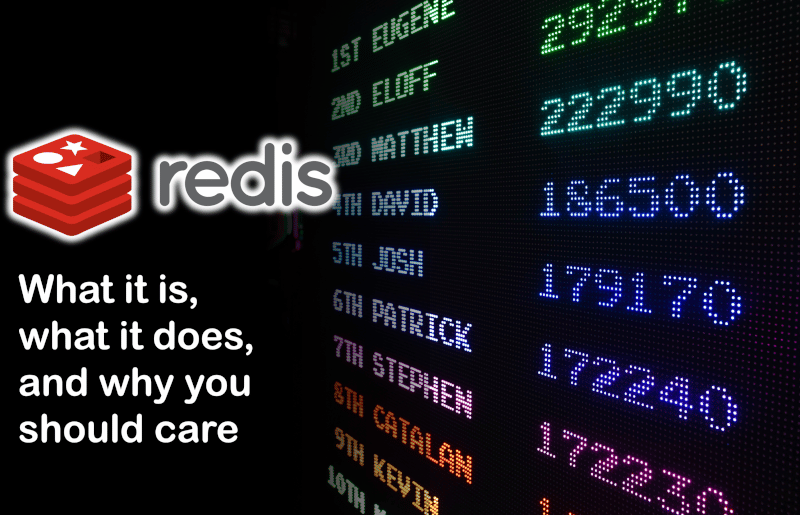
What is Redis?
Redis is an open source in-memory data store that works really well as a cache or message broker, but it can also be used as a database when you don’t need all the features of a traditional database. It offers excellent performance, with the ability to quickly read and write data to memory. Additionally, Redis supports atomic operations, making it ideal for caching scenarios where you need fast access time.
Redis enables you to write traditionally complex code with fewer, simpler lines. With Redis, you write fewer lines of code to store, access, and use data in your applications. The difference is that developers who use Redis can use a simple command structure as opposed to the query languages of traditional databases.
Simplicity and ease-of-use
Redis enables you to write traditionally complex code with fewer, simpler lines. With Redis, you write fewer lines of code to store, access, and use data in your applications. The difference is that developers who use Redis can use a simple command structure as opposed to the query languages of traditional databases. For example, you can use the Redis hash data structure to move data to a data store with only one line of code. A similar task on a data store with no hash data structures would require many lines of code to convert from one format to another. Redis comes with native data structures and many options to manipulate and interact with your data. Over a hundred open source clients are available for Redis developers. Supported languages include Java, Python, PHP, C, C++, C#, JavaScript, Node.js, Ruby, R, Go, and many others.
Open Source
Redis is an open source project supported by a vibrant community, including AWS. There’s no vendor or technology lock in as Redis is open standards based, supports open data formats, and features a rich set of clients.
Redis on AWS
You might be familiar with Amazon ElastiCache for Redis. It is a Redis-compatible cache service that is available on AWS. Redis Enterprise Cloud on AWS is a fully-managed Redis Enterprise as a service and supports Redis as a cache and a database. Learn more about Redis on AWS.
STAY IN THE LOOP





